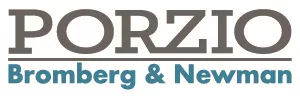- within Cannabis & Hemp topic(s)
- with readers working within the Construction & Engineering industries
In today's shifting political landscape, particularly under the Trump administration's recent executive orders on diversity, equity, and inclusion (DEI), workplace initiatives such as cultural celebrations, recognition events, and educational programming have become increasingly difficult to navigate. What were once considered effective strategies to promote inclusivity and enhance workplace morale are now under increased scrutiny. Today, companies are weighing whether they are obligated -- or even permitted -- to continue supporting or sponsoring such events. With Pride Month approaching, businesses may benefit from exploring thoughtful strategies that align with their compliance responsibilities and risk management priorities.
Understanding the Effects of Executive Order 14173 on Pride Month and Other Diversity Celebrations
Executive Order 14173, signed by President Trump on January 21, 2025, introduced notable compliance requirements for organizations that receive federal funding or have contracts with the federal government. Under this directive, such entities must now certify that their DEI programs do not conflict with federal anti-discrimination laws. Importantly, this certification has been deemed a material term under the False Claims Act (FCA), heightening the legal risks associated with noncompliance. The complexity of this requirement is further underscored by the U.S. Department of Justice's (DOJ) announcement on May 19, 2025, of a new unit specifically focused on investigating DEI-related FCA violations.
As Pride Month approaches in June, some employers are reassessing their public support and internal initiatives related to LGBTQ+ issues. This reassessment comes in response to EO 14173 and similar executive directives, as well as interpretive guidance from federal agencies like the Equal Employment Opportunity Commission (EEOC) and DOJ. According to a recent Gravity Research survey, about two in five corporate leaders report reducing their Pride Month activities and engagements this year, compared to prior years. Among those surveyed, 60% attributed this retreat to federal policy changes affecting transgender individuals and broader DEI initiatives. Executives also cited concerns about potential backlash from consumers, legal challenges from shareholders, and internal disagreement over event content. Because the Executive Orders do not clearly define what constitutes "unlawful DEI," determining whether particular events or educational initiatives fall within this category remains uncertain and likely will depend on specific circumstances.
The absence of clear guidance on what qualifies as unlawful DEI activity has created significant uncertainty for employers. Though the Executive Orders forbid DEI activity that they perceive as "discriminatory," they do not define precisely what type of DEI activities could be considered as such. A frequent concern among organizations is whether they should withdraw support for events such as Pride events. There's no simple answer -- these decisions hinge on factors like regulatory compliance with guidance promulgated by the EEOC and other such agencies, and an organization's individual risk tolerance.
Even with the policy shifts introduced by the current administration, employers still are permitted to recognize important historical moments and offer education concerning protected classes, such as race and sex. While programming that focuses on identity and protected characteristics remains lawful, employers may need to take a more thoughtful approach to planning and implementation. A key consideration is ensuring that educational and cultural events are inclusive rather than divisive. Programs that separate individuals based on protected characteristics, or that limit participation to certain groups, could be seen as exclusionary. To navigate these complexities and reduce potential legal exposure, employers can adopt specific strategies and safeguards when hosting cultural observances.
Key Compliance Considerations for Workplace Cultural Programming
To navigate the evolving regulatory landscape and mitigate legal risks, employers may consider the following best practices when organizing educational or celebratory workplace events:
1. Alignment with EEOC Guidance: Employers should ensure their initiatives are consistent with the EEOC's Technical Assistance Manual and current guidance. This includes staying informed about recent legal developments. For instance, on May 15, 2025, a federal court vacated portions of the EEOC's workplace harassment guidance, specifically those relating to harassment on the basis of sexual orientation and gender identity. In addition, organizations should always consider applicable state and local laws that continue to prohibit discrimination and harassment based on these characteristics, such as the New Jersey Law Against Discrimination (NJLAD).
2. Avoiding Segregation by Protected Characteristics: Employers must assess whether any events, programming, or affinity groups may unintentionally separate employees based on protected characteristics, for example: Are events truly inclusive and open to everyone, regardless of background? Are participation roles assigned in a non-discriminatory manner? Do cultural and celebratory initiatives segregate employees?
3. Voluntary Participation: Celebratory and educational programming should be voluntary, with the exception of legally mandated training sessions, such as those focused on addressing harassment, discrimination, or required compliance with local, state, and federal laws. Employees should not feel compelled to attend cultural events or discussions.
4. Ensuring Equitable Recognition: Employers should ensure that DEI efforts reflect a balanced and inclusive approach, taking steps to safeguard against a single group or characteristic receiving disproportionate attention to the exclusion of others.
Although current guidance poses challenges for DEI celebrations and education, organizations can successfully navigate these complexities through careful planning, legal compliance, and continuous evaluation. Porzio's team of employment and labor attorneys are here to help your organization continue to navigate the changing legal landscape as the administration's approach to DEI continues to evolve.
The content of this article is intended to provide a general guide to the subject matter. Specialist advice should be sought about your specific circumstances.


